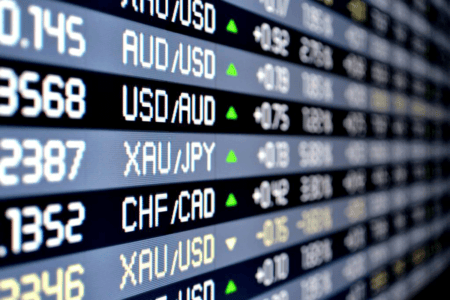How do geopolitical events influence regional stock markets? As tensions escalate in the Middle East, investors find themselves navigating through yet another layer of complexity. Tuesday’s stock market activity in the Gulf provided a glimpse into the impacts of regional instability on financial markets, with most indices closing lower amidst rising tensions.
Israeli military operations in Gaza and U.S. actions against Iran-backed Houthis in Yemen, who have disrupted vital oil trading routes with their maritime attacks, have cast a shadow over investor confidence. The strikes in Gaza’s southern city of Khan Younis, leading to significant Palestinian casualties, and the ongoing U.S. efforts to secure a ceasefire have only intensified the unease in the region.
Read: EU Deal Intensifies Pressure on Hungary for Sweden’s NATO Entry
In Dubai, the main share index took a noticeable hit, dropping 1.8%. Heavyweights like Emirates Central Cooling Systems and Gulf Navigation Holding saw their stock values plummet by 4.4% and 9.9%, respectively. Analyst Joseph Dahrieh from Tickmill suggests that despite the overall uptrend, the Dubai market’s vulnerability to regional tensions is apparent. He notes that although sturdy local fundamentals could provide some lift, the markets could face continued downside risks if these tensions escalate.
Abu Dhabi’s index also experienced a downturn, losing 1%, with the First Abu Dhabi Bank’s shares dipping by 1%. Contrastingly, Saudi Arabia’s benchmark index bucked the trend, rising 0.4%, with significant gains seen in both Saudi Aramco and the Dr Sulaiman Al Habib Medical Services Group.
The fluctuating oil prices, notably sensitive to Middle Eastern affairs, remained relatively stable, perhaps due to investors’ anticipation of the outcomes of U.S. diplomat Antony Blinken’s Middle East visit. These developments are crucial for the Gulf region’s markets, given the heavy reliance on oil revenues.
Beyond the Gulf, Egypt’s blue-chip index also faced headwinds, dropping 1.4%, with its top lender, Commercial International Bank, seeing a steep 5% decline in value. The country’s non-oil private sector activity has been contracting, affected by both inflation pressures and ripple effects from the Gaza conflict.
As we weave through the intricate fabric of these market movements, it’s evident that regional turmoil has a significant role to play. Yet, amidst this turbulence, some markets like Saudi Arabia’s manage to navigate cautiously and emerge stronger, albeit temporarily. This resilience is a testament to the possibility of weathering geopolitical storms with strategic foresight and robust economic fundamentals.
Thus, as the Gulf markets ride out the current upheaval, investors remain watchful. The critical question that stands is whether this period of uncertainty will continue to dominate market sentiment or if a semblance of stability will return, allowing markets to recalibrate and refocus on core financial drivers.
Tags: #GulfStockMarkets, #MiddleEastTensions, #InvestorSentiment, #OilPrices, #MarketVolatility
What’s your take on this? Let’s know about your thoughts in the comments below!












